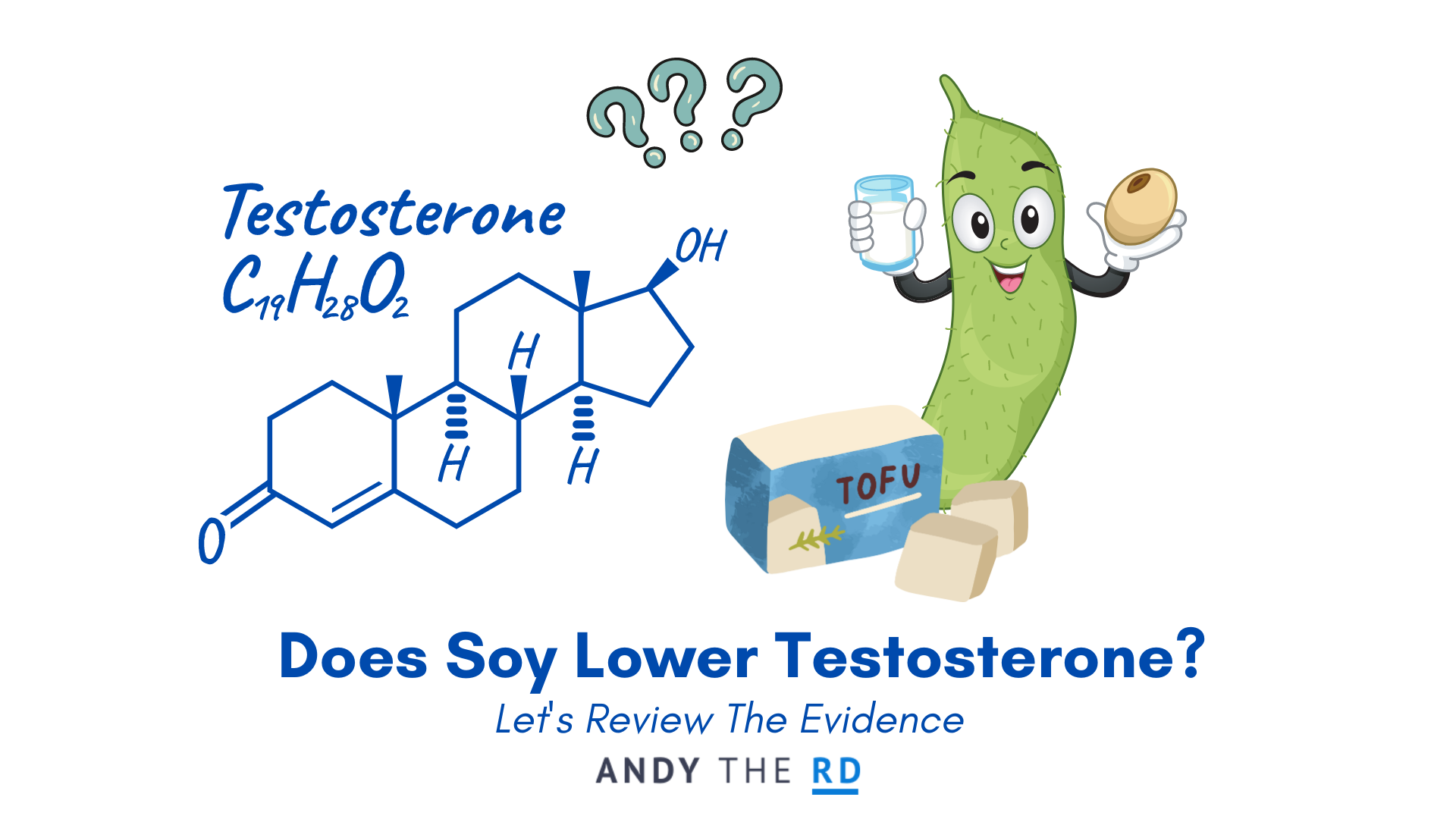As someone who deals with this topic on a near-daily basis, I appreciate more than most the significant public interest surrounding the consumption of soy-based foods and their influence on male testosterone levels.
All roads of inquiry lead to one question – Does soy lower testosterone?
Certainly, there is a portion of the population who believes it does and I don’t doubt that there are men out there who might otherwise be inclined to consume foods such as tofu, tempeh, edamame, and soymilk but refrain over concerns of this precise nature.
These concerns primarily stem from isoflavones, which soy is a uniquely rich source of. Isoflavones are naturally occurring plant compounds that are commonly classified as phytoestrogens although they differ from the hormone estrogen.
As a dietitian who champions diversity in protein intake as the path toward better health for men, this sentiment concerns me.
This brings us to today’s content: A collaborative piece prepared in conjunction with the Soy Nutrition Institute (SNI) Global with the goal of reviewing the best and most recent evidence around soy intake and male hormone levels.
Let’s get to the good stuff.
Soy Intake & Male Testosterone Levels
As with any scientific inquiry, the most reasonable and rational way to assess whether or not the consumption of soy-based foods affects male testosterone levels is to review the available human evidence.
One of the first randomized controlled trials to examine this issue was a Japanese study published in 2001 in the Cancer Epidemiol Biomarkers & Prevention journal.
In this study men in the experimental group were asked to drink 400 ml of soymilk daily over an 8-week period while the control group maintained their usual diet.
At the conclusion of the study there were no statistically significant differences in circulating levels of total or free (biologically active form) testosterone levels between the two groups of men.
Fast forward two decades to 2021 when the Journal Of Reproductive Toxicology published a comprehensive meta-analysis of studies, similar in nature to the one discussed above, that were conducted between 2010 and 2020.
The analysis included 41 trials involving nearly 2,000 men whose testosterone levels were assessed before and after increasing their intake of soy-based foods, soy protein, or soy isoflavones.
None of these studies demonstrated that soy foods or soy components in isolation had a statistically significant influence on male testosterone levels. This remained true even when the analysis was restricted to studies of longer durations and those that intervened with higher amounts of soy.
By the way, there was also no effects on estrogen levels.
Soy Intake & Male Fertility
As an extension of concerns over testosterone levels, I’ve also encountered lingering beliefs that the consumption of soy foods may interfere with male fertility.
Having written previously on the connection between diet and male fertility, I appreciate the relevance of such concerns – but that does not mean that they are scientifically warranted. by research.
A 2015 study published in the Andrology journal examined the dietary habits of men in couples undergoing in vitro fertilization (IVF) and found no correlation between the consumption of soy foods and fertility success rates or other fertility parameters related to semen quality.
These results align with the outcomes of a 2010 randomized controlled trial published in the journal Fertility and Sterility which assessed the effects of daily soy protein intake over a two-month period in young men (average age 27.5) on measures of semen quality such as sperm count, sperm motility and sperm concentration.
No statistically relevant effect was noted.
What Does This Mean For You?
Those who have read my previous work or consulted with me in a private capacity will be abundantly aware of my professional philosophy around a diverse, varied protein intake being fundamental for good long-term health in men.
It can be harder to achieve such a dietary pattern if soy foods are omitted, particularly if that is true of omissions related to concerns over soy’s interaction with testosterone levels.
The significant amount of research in this area demonstrates that an increase in soy consumption will not lower your testosterone levels, and my hope is that those who enjoy soy foods will continue to do so free from unnecessary concerns of nature.
In my next SNI Global and U.S. Soy sponsored piece of writing, I’ll be taking a deep dive into the quality of soy protein and its suitability as a plant-based muscle-building tool.
Stay tuned!
Andy De Santis RD MPH
This post is in collaboration with the Soy Nutrition Institute (SNI) Global, an organization leading the way in soy and health research and education, and U.S. Soy.



